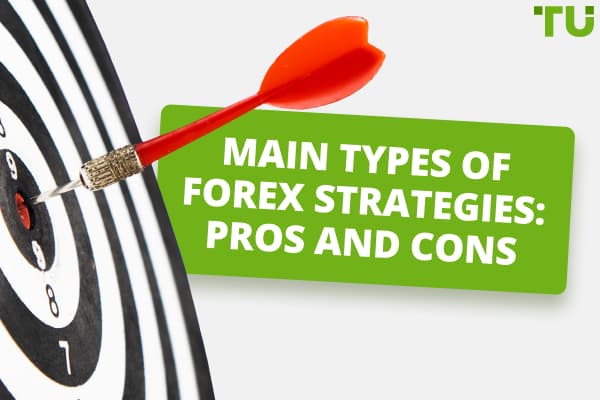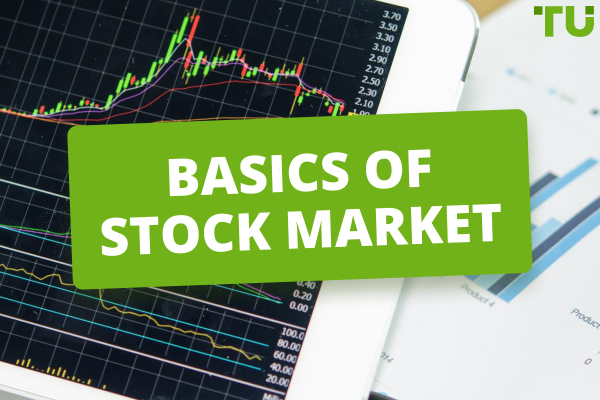Where Do Millionaires Keep Their Funds?
By and large, the rich keep their money in many of the same places as average investors. According to Capgemini Research, they like stocks for growth, fixed income for stability, real estate for growth and stability, and cash. They love cash and cash equivalents, like certificates of deposit and short-term bond funds, as a safe haven during turbulent economic times.
With rising prices, record credit card debt, and skyrocketing housing costs, most people are doing their best to keep the money they have and hoping to find ways to grow it. That's why it may be worth considering what rich people are doing with their money. After all, they essentially have the same goals. While they may be somewhat insulated from many of the economic and financial challenges facing most people, they still want to be able to preserve what they have and grow it for future generations.
Of course, the wealthy do have an advantage over the rest of us. With more money to invest, they have more choices for what to do with it. They can build more extensive and diversified portfolios, invest directly in real estate, and, if it suits them, invest directly in business opportunities. But most people would be surprised to learn that rich people have the same goals—to preserve and grow their wealth—and are as averse to risk as most investors.
What separates the rich from average investors is their ability and willingness to invest in alternative investments, such as art, digital assets, and private equity deals, with the potential for higher returns. Though these investments entail higher risk, they typically represent a very small percentage of their overall investment portfolio.
This article delves deeper into where the rich keep their money as it examines the question of whether investing like wealthy people is a good idea.
Start trading Stocks and ETFs with zero fee with eToroDo rich people carry a lot of cash?
The amount of cash rich people carry can vary widely based on individual preferences, lifestyles, and circumstances. While some wealthy individuals may hold a significant amount of cash for convenience or personal reasons, many prefer not to carry large sums for security and other considerations. Advances in digital and electronic payment systems have made it increasingly convenient and secure for people, regardless of financial status, to conduct transactions without relying heavily on physical currency.
Best investment brokers
Do millionaires use credit cards?
Many millionaires use credit cards, as most people do, for convenience, security, and fraud protection. They also like them for the rewards and benefits, strategically using them to accumulate rewards or take advantage of specific benefits, such as airport concierge services. Also, even rich people need to maintain a good credit score; using credit cards is the best way to do that.
What do rich people focus on?
The focus of wealthy individuals can vary widely based on personal values, goals, and priorities. However, there are several common themes and areas of focus that many wealthy people tend to emphasize:
-
Wealth preservation and growth: Many wealthy individuals prioritize strategies for preserving and growing their wealth, which involve financial, investment, tax, and estate planning, along with risk management, to ensure they pass on as much of their wealth as possible to the next generation.
-
Entrepreneurship and business ventures: Many wealthy people are business owners, focusing on building and scaling businesses, identifying new opportunities, and diversifying their sources of income.
-
Philanthropy and social impact: Wealthy individuals tend to be involved in philanthropy and charitable activities, focusing on making a positive impact on society and supporting causes they are passionate about.
-
Networking and relationships: Building and maintaining a strong network is crucial for many wealthy individuals. Networking provides access to opportunities, information, and partnerships that can contribute to business success and personal growth.
-
Health and well-being: Maintaining physical and mental health is essential for many wealthy individuals. They may invest in fitness routines, healthcare, and wellness activities to ensure they can continue to pursue their goals.
-
Continuous learning: Many wealthy individuals prioritize continuous learning. They want to stay informed about industry trends, market developments, and emerging technologies to stay ahead in their business endeavors.
Is investing like wealthy people a good idea?
It's crucial to understand that every investor's financial situation is different, with their own goals, priorities, and risk tolerance. But, while it's never advisable to simply copy someone else's investment strategy, we can all learn a thing or two from the wealthy because many of them got that way by following sound investment principles—principles that can be applied in most situations with similar results.
Some common money principles followed by many wealthy people include:
Diversification: Wealthy individuals often diversify their investments across various asset classes to spread risk. Diversification helps to minimize the impact of market volatility and poor performance on any single investment.
Long-term orientation: Many wealthy investors adopt a long-term investment approach. They understand that markets can be volatile in the short term and that staying invested in well-diversified portfolios over extended periods is the key to building wealth.
Professional advice: Wealthy individuals often seek advice from financial professionals, including investment advisors tax experts, and estate planners. Working with knowledgeable professionals can help navigate complex financial matters.
Risk management: Successful investors carefully assess and manage risks. They consider factors such as market volatility, economic conditions, and geopolitical events in their investment decisions and take steps to mitigate risks.
Emergency fund: Building and maintaining an emergency fund is a key principle. This fund provides a financial safety net for unexpected expenses or income disruptions, allowing wealthy individuals to navigate challenges without jeopardizing their long-term financial goals.
Research and education: Wealthy investors like to stay informed about market trends, economic indicators, and investment opportunities. Continuous learning and research are crucial for making informed investment decisions.
Multiple income streams: Many wealthy individuals diversify their sources of income. This might involve investments, business ownership, real estate, or other income-generating activities. Having multiple streams of income provides financial stability and resilience.
Avoid bad debt: Wealthy people try to avoid bad debt, such as credit cards. However, they may strategically use debt for investments that have the potential to generate returns exceeding the cost of borrowing.
Discipline and patience: Wealthy individuals exercise discipline and patience in their financial decisions. They avoid impulsive actions and understand that building substantial wealth requires adhering to a long-term strategy.
Continuous goal setting: Wealthy individuals often set clear financial goals and regularly reassess them. This involves establishing short-term and long-term objectives related to investment returns, business growth, or personal financial milestones.
Live below your means: Many wealthy people prioritize saving and investing by living below their means. This means controlling spending and avoiding unnecessary debt to allocate more money toward savings and investments.
While there are valuable lessons to learn from wealthy investors, it's important to note that these principles are generalizations, and individual financial situations vary. Factors such as risk tolerance, time horizon, and financial goals should guide your investment decisions. Additionally, it's crucial to be aware of your own financial situation and seek professional advice when needed.
How the rich invest their money
For a deeper dive into how the rich invest their money, a report by Capgemini Research offers the most extensive data, breaking down the different assets held by high-net-worth individuals as a percentage of all asset allocation categories. The findings are summarized here.
Cash and cash equivalents
It seems counterintuitive that the wealthy would keep a large portion of their assets in cash and cash equivalents. Not only do they hold a significant portion of their money in cash, at 34%, but it's the largest percentage of all the asset categories. That's up from 25% for the previous five years. The increase is likely due to higher inflation, rising interest rates, general economic concerns, and market volatility.
Generally, the wealthy tend to follow Warren Buffett's top rules for building wealth. Rule number one is never to lose money. Rule number two is never to forget rule number one. Since not losing money is of paramount importance to the wealthy, they often keep a significant amount of money in cash or cash equivalents. They will adjust that amount up or down depending on how they feel about the economy and the markets.
Wealthy people don't like to keep a lot of cold, hard cash on hand for security reasons. Instead, they invest it in cash equivalents, liquid financial assets that can be converted to cash quickly, such as bank CDs, Treasury bills, money market funds, and short-term debt instruments.
Though cash equivalents generate relatively low returns and risk losing purchasing power due to inflation, they're shielded from market volatility, which can be a more significant threat to wealth. The wealthy also like liquidity —having enough cash readily available to pay for ongoing living and emergency expenses or invest in new opportunities.
Equities
At 23%, equities are second to cash as a top holding for the rich. According to Capgemini data, that's down from 29% in 2022, which means wealth investors have pared back their stock holdings. They have also shifted their preference from riskier technology stocks to value stocks, which tend to generate lower returns but are less volatile.
Again, wealthy people don't like losing money, so they use caution when investing in stocks, ensuring they are well-diversified across many different companies, industries, and sectors.
The stock investment of choice for many wealthy investors is dividend-paying stocks. They like the steady cash flow and relative stability of high-quality companies.
Real estate
The wealthy have long had an affinity for real estate for the growth potential and passive income streams it creates. They currently hold about 15% of their assets in real estate, which has mostly stayed the same over the past five years.
Higher mortgage rates have put a damper on residential real estate investments this year, and investors are shying away from commercial real estate due to declining values.
Fixed income
Wealthy investors favor the stability and security of fixed-income investments with about 15% of their assets. Investments such as government and high-grade corporate bonds generate predictable returns with steady interest payments and a 100% return of principal when they mature.
With their low correlation to stocks, bonds provide portfolios with an effective counterweight to the volatility of equities.
Alternative investments
The wealthy's allocation to alternative investments has increased from 9% in 2018 to 13% in 2024. That is due to the increasing popularity of digital assets like Bitcoin and NFTs (non-fungible tokens). Commodities like gold and silver have always been a staple for wealthy investors, as have private equity funds. Many rich people are collectors of rare coins and artwork, which have proven to be sound investments.
Alternative investments receive the smallest allocation because some are considered to be speculative, offering significant returns if they pay off but substantial risk if they don't. Wealthy investors allocate a portion of their assets that they can afford to tie up for long periods of time.
It's important to note that the specific choices vary widely based on individual preferences, risk tolerance, and financial goals. Additionally, the regulatory environment and tax implications can influence the decisions of where wealthy individuals choose to keep their money.
How the Wealthy Manage Complex Finances
Quicken is one of the most popular personal finance programs among individuals with intricately managed financial lives. With its robust feature set, Quicken provides a holistic approach for monitoring expenses, investments, taxes, and beyond.
Many wealthy users favor Quicken for its strong budgeting and spending tracking abilities. Connecting all bank accounts, credit cards, and investments surfaces a complete picture of income sources and expenditure categories. This level of visibility is crucial for those with numerous revenue streams and cost centers to oversee carefully.
Quicken also delivers useful reporting tailored for sophisticated financial planning. Real-time dashboards and analytics on cash flow, net worth, portfolio returns, and more empower informed decisions around optimizing assets, reducing tax burdens, and achieving long-term objectives.
Regarding investments, Quicken seamlessly tracks equities and mutual funds. Quotes, news headlines, and performance charts are accessible directly within the program. Thanks to its tax planning tools and educational calculators, high-net-worth users gain insights to help minimize obligations and strategize major life milestones.
Overall, with the capability to unify both personal and business accounting on a single platform, Quicken presents a one-stop solution for complex financial management needs. The software provides affluent users with deep operational oversight and control of their vast finances.
Charitable giving
Many wealthy people are motivated by philanthropic desires, using their money to support causes they are passionate about or to benefit the community. While their passion for giving drives them, they are incentivized by the tax-mitigating provisions in the tax code. Properly structured charitable giving strategies can play a critical role in helping wealthy families maximize their legacy.
When using certain charitable gifting techniques, it's possible to benefit a charity during your lifetime without having to sacrifice the income an asset can generate. When properly structured, charitable giving techniques can help wealthy people achieve the following:
-
Transfer large assets while retaining the rights to the income they generate
-
Receive a current tax deduction for an asset that transfers after your death
-
Transfer the income rights of an asset to a charitable organization for a specific period of time
As with any issue pertaining to taxes, decisions should only be made with the guidance of a qualified tax professional. Tax laws are prone to constant change and apply differently depending on an individual's situation.
Bottom line
Most rich people are concerned about preserving their wealth while continuing to grow it to pass it on to future generations. They tend to follow sound financial principles such as living below your means, diversification, setting goals, managing risks, and careful planning to achieve that.
Though the distribution of assets among various investment categories varies depending on individual preferences, financial goals, and risk tolerance, wealthy people tend to keep the largest portion of their assets in cash and cash equivalents, followed by equities, real estate, bonds, and alternative investments.
In addition, many rich people are philanthropic minded, wanting to use their wealth to benefit others and supporting causes they are passionate about.
Glossary for novice traders
-
1
Broker
A broker is a legal entity or individual that performs as an intermediary when making trades in the financial markets. Private investors cannot trade without a broker, since only brokers can execute trades on the exchanges.
-
2
Investor
An investor is an individual, who invests money in an asset with the expectation that its value would appreciate in the future. The asset can be anything, including a bond, debenture, mutual fund, equity, gold, silver, exchange-traded funds (ETFs), and real-estate property.
-
3
Trading
Trading involves the act of buying and selling financial assets like stocks, currencies, or commodities with the intention of profiting from market price fluctuations. Traders employ various strategies, analysis techniques, and risk management practices to make informed decisions and optimize their chances of success in the financial markets.
-
4
Volatility
Volatility refers to the degree of variation or fluctuation in the price or value of a financial asset, such as stocks, bonds, or cryptocurrencies, over a period of time. Higher volatility indicates that an asset's price is experiencing more significant and rapid price swings, while lower volatility suggests relatively stable and gradual price movements.
-
5
Diversification
Diversification is an investment strategy that involves spreading investments across different asset classes, industries, and geographic regions to reduce overall risk.
Team that worked on the article
Richard has over 30 years of experience in the financial services industry and has written extensively on a broad range of financial and investment topics. He is a contributor to many online publications, including Investopedia and Forbes, and his weekly personal finance columns appear on the websites of more than 100 community and regional banks. Richard has also edited or ghostwritten more than a dozen books.
Dr. BJ Johnson is a PhD in English Language and an editor with over 15 years of experience. He earned his degree in English Language in the U.S and the UK. In 2020, Dr. Johnson joined the Traders Union team. Since then, he has created over 100 exclusive articles and edited over 300 articles of other authors.
Mirjan Hipolito is a journalist and news editor at Traders Union. She is an expert crypto writer with five years of experience in the financial markets. Her specialties are daily market news, price predictions, and Initial Coin Offerings (ICO).











